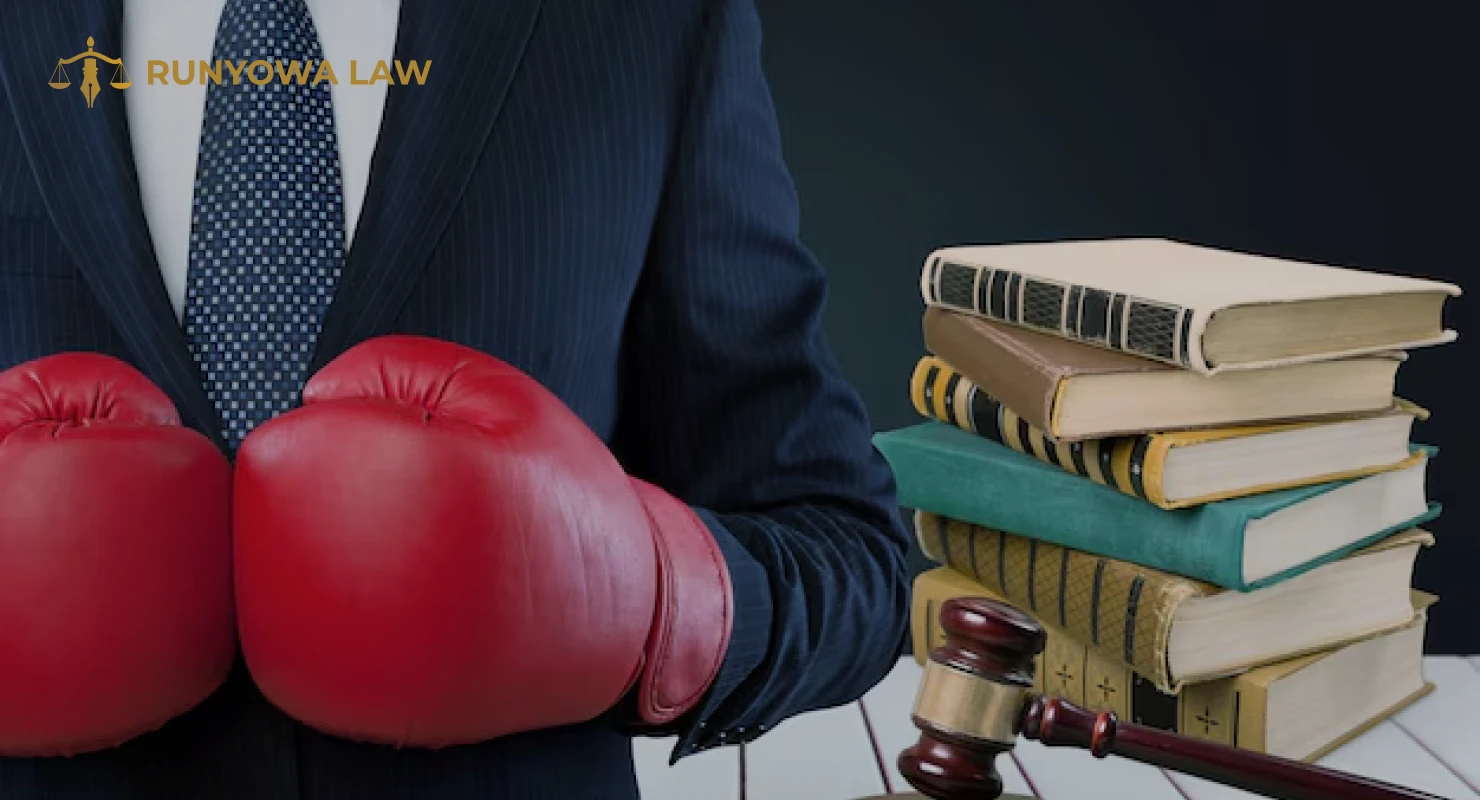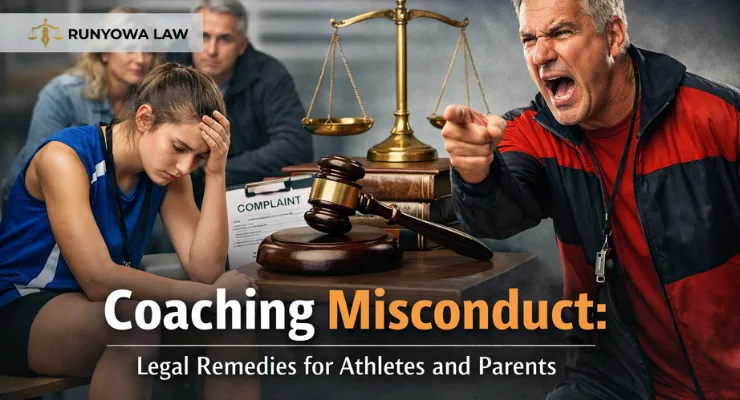Boxing isn’t just about punches and victories—it’s a business driven by contracts, sponsorships, and legal agreements. A boxing lawyer helps fighters safeguard their rights, negotiate fair deals, secure endorsements, and avoid exploitation. From drafting watertight contracts to resolving disputes and managing intellectual property, boxing lawyers ensure that boxers get the compensation, recognition, and protection they deserve. If you’re serious about your boxing career, having an experienced legal representative isn’t optional—it’s essential.
Introduction: The Business Side of Boxing
When most people think about boxing, they picture the roar of the crowd, the flash of the gloves, and the glory of victory. But behind every bout lies a web of complex legal and financial agreements. The truth is that boxing is as much a business as it is a sport—and in that business, the difference between success and exploitation often comes down to one thing: having the right boxing lawyer on your side.
As a fighter, your primary focus might be training and winning matches. But without legal expertise, you could unknowingly sign contracts that limit your income, tie you to unfair promotional deals, or compromise your rights to endorsements and image usage. That’s where boxing lawyers step in—they’re not just attorneys; they’re your business protectors in the fight outside the ring.
Understanding Fighter Contracts in Professional Boxing
Before understanding how boxing lawyers help, it’s crucial to grasp what fighter contracts involve. Every professional boxer signs multiple agreements throughout their career—each with distinct legal implications.
1. Promotion Agreements
Promotional contracts determine who manages your fights, marketing, and media exposure. Promoters often cover event costs but, in return, take a percentage of your purse. Without legal review, fighters can get locked into long-term, restrictive deals that limit their earnings and independence.
A boxing lawyer can identify clauses that unfairly favor the promoter and negotiate terms that ensure your career freedom.
2. Management Contracts
Managers handle a fighter’s day-to-day business affairs, from scheduling matches to securing sponsorships. While a manager can be a great ally, poorly written agreements can lead to financial exploitation or conflicts of interest.
Boxing lawyers ensure that management contracts comply with national and international sporting laws and that your compensation aligns with industry standards.
3. Endorsement and Sponsorship Deals
Endorsements are a fighter’s goldmine outside the ring. Shoe brands, energy drinks, sportswear companies—all want a piece of your fame. However, each deal comes with image rights, usage limitations, and payment structures that can get tricky.
Without proper legal advice, you could unknowingly sign away control of your likeness or agree to perpetual use without royalties. A boxing lawyer makes sure endorsement deals are beneficial and transparent.
4. Broadcasting and Licensing Agreements
Television and streaming rights are major revenue sources. Broadcasters might pay millions to air a fight, but how that revenue is divided depends entirely on the contract terms. A skilled boxing lawyer ensures you receive your fair share and that intellectual property rights (like fight footage and highlights) remain protected.
5. Bout Contracts
Every fight involves a bout agreement outlining the purse, weight class, venue, rules, and penalties for breach. These documents may seem simple, but minor omissions—such as rematch clauses or injury provisions—can have serious consequences.
That’s why boxing lawyers meticulously review every clause, protecting you from unfair forfeitures and ensuring you’re compensated even if events are postponed or canceled.
Why a Boxing Lawyer Is Essential for Every Fighter
Having legal representation isn’t just for superstars like Canelo Alvarez or Tyson Fury. Whether you’re an amateur turning pro or a seasoned fighter, the complexities of the boxing business make having a boxing lawyer non-negotiable.
1. Protecting Fighters from Exploitation
Boxing history is filled with stories of talented fighters being manipulated by promoters or managers. Many legends, including Muhammad Ali and Mike Tyson, faced contract disputes and financial mismanagement.
A boxing lawyer ensures history doesn’t repeat itself. They act as a safeguard, reviewing all documents before you sign and advising you on how to maintain control over your career.
2. Negotiating Fair Compensation
It’s common for fighters to receive less than they deserve, especially early in their careers. A knowledgeable boxing lawyer can negotiate better purse splits, sponsorship percentages, and performance bonuses.
They understand the fine print—like gate revenue shares, PPV (Pay-Per-View) percentages, and merchandise royalties—helping fighters maximize their earnings both inside and outside the ring.
3. Managing Endorsement Opportunities
In the modern boxing world, endorsements are often more lucrative than fight purses. Think of how brands flock to top-tier athletes for global marketing campaigns. But navigating endorsement contracts requires precision.
Boxing lawyers ensure that the fighter’s intellectual property rights—including their name, image, and likeness—are fully protected, and they negotiate exclusivity clauses to avoid conflicts between multiple sponsors.
4. Ensuring Compliance with Sports Regulations
Boxing operates under national and international regulations, including those set by bodies like the WBC, WBA, IBF, and local commissions. A boxing lawyer ensures that contracts adhere to these regulations and that fighters don’t inadvertently breach any legal or ethical codes.
5. Resolving Contract Disputes
Even with the best contracts, disputes can arise. Promoters might withhold payments, or sponsors could breach agreements. Boxing lawyers have experience in sports arbitration, mediation, and litigation, giving fighters a strong legal voice when conflicts occur.
6. Intellectual Property Protection
In the digital age, a fighter’s brand extends beyond the ring. Social media, video content, and merchandise all rely on image rights. Without legal safeguards, third parties could profit from a fighter’s name or likeness without consent.
A boxing lawyer ensures that all licensing agreements clearly define ownership and control of intellectual property assets.
7. Long-Term Career Planning
A boxing career is often short, but a boxing lawyer helps plan for the future. They guide fighters in establishing corporate entities, trademarks, and investment strategies, ensuring long-term financial stability even after retirement.
The Role of Boxing Lawyers in Negotiating Fighter Contracts
Contracts form the backbone of a fighter’s career, and negotiations determine their success. Here’s how boxing lawyers add value to this critical process.
1. Drafting and Reviewing Agreements
Whether you’re signing with a promoter, manager, or sponsor, every clause matters. Boxing lawyers draft and review agreements to make sure you understand all obligations, restrictions, and rights.
They clarify ambiguous language, eliminate exploitative terms, and add protective clauses that preserve your financial and professional freedom.
2. Understanding Legal Jargon
Legal documents can be full of confusing terminology. A boxing lawyer translates the fine print into plain language, helping you make informed decisions before committing to any deal.
3. Negotiating Favorable Terms
Negotiation is where boxing lawyers shine. They leverage their understanding of sports industry norms to secure favorable terms for the fighter, whether it’s higher pay, better fight schedules, or improved promotional control.
4. Avoiding Conflicts of Interest
Promoters and managers sometimes represent multiple fighters, leading to conflicts of interest. A boxing lawyer ensures that your interests remain top priority and that no hidden agendas influence your contract terms.
Boxing Lawyers and Endorsement Management
Endorsements play a vital role in modern boxing. From brand partnerships to media appearances, they can generate millions. But mismanaging endorsements can also damage your reputation and financial standing.
Here’s how boxing lawyers make a difference.
1. Evaluating Brand Compatibility
Not every endorsement is right for every fighter. A boxing lawyer helps assess whether a brand aligns with your image, public persona, and long-term goals.
2. Protecting Image Rights
A fighter’s face and name are valuable assets. Boxing lawyers draft image-rights agreements that limit how companies can use your likeness and ensure ongoing compensation for usage.
3. Structuring Payment Terms
Endorsement contracts often include complex payment terms—upfront fees, royalties, or bonuses based on performance metrics. A boxing lawyer ensures that payment schedules are clear, achievable, and legally enforceable.
4. Managing Conflicts Between Sponsors
If you’re endorsed by multiple brands, there can be conflicts (e.g., two competing sportswear companies). Boxing lawyers help structure agreements to avoid overlap and prevent breach-of-contract issues.
5. Handling International Endorsements
For fighters with global appeal, endorsement deals often span countries. Different jurisdictions mean different laws. Boxing lawyers ensure compliance with international trade, taxation, and advertising regulations—especially vital for a sports lawyer in Canada or anywhere else managing cross-border deals.
Real-Life Lessons: Famous Cases Highlighting the Need for Boxing Lawyers
Several high-profile cases show what happens when fighters lack proper legal protection.
- Mike Tyson’s Management Disputes: Tyson lost millions due to mismanagement and unfair contractual terms.
- Don King’s Controversies: Many fighters accused promoters of withholding payments and manipulating agreements.
- Oscar De La Hoya vs. Top Rank: Legal battles over contract breaches cost years of litigation and reputation damage.
In each case, strong legal representation could have prevented or minimized losses. Boxing lawyers ensure you never face these pitfalls.
Why You Should Never Sign Without Legal Advice
Even if a deal looks lucrative, signing without a lawyer’s review can be disastrous. Boxing lawyers analyze:
- Hidden clauses that restrict future fights.
- Penalties for cancellations or injuries.
- Non-compete or exclusivity agreements.
- Rights over fight footage and sponsorship appearances.
By catching red flags early, your lawyer ensures that no one profits at your expense.
The Future of Boxing Law: Digital Rights and New-Age Deals
The sports landscape is evolving. With digital media, streaming platforms, and NFTs, new legal challenges emerge daily.
Boxing lawyers now handle:
- Digital broadcasting rights for online platforms.
- NFT and metaverse image licensing.
- Social media monetization agreements.
- Brand ambassador programs for online marketplaces.
The next generation of fighters will rely even more on legal professionals to navigate these innovative contracts.
Choosing the Right Boxing Lawyer
Not all lawyers are equipped to handle the complexities of combat sports. When choosing representation, consider:
- Specialization in Sports Law – General attorneys may not understand industry norms.
- Experience with Fighter Contracts – Look for lawyers who’ve represented boxers or MMA fighters.
- Reputation and Reviews – Seek referrals from other athletes or industry insiders.
- Transparency in Fees – Ensure your lawyer offers clear billing structures (hourly, retainer, or contingency).
- Strong Communication Skills – You need a lawyer who explains complex legal concepts simply.
For example, several lawyers in Regina Saskatchewan specialize in sports and entertainment law—demonstrating that even regional professionals can provide world-class expertise.
Common Mistakes Boxers Make Without a Boxing Lawyer
- Signing contracts without review.
- Ignoring tax and financial implications.
- Overlooking image-rights clauses.
- Failing to register trademarks or logos.
- Accepting lowball offers from promoters.
Each of these mistakes can cost millions over time. With a boxing lawyer, you minimize these risks.
Frequently Asked Questions (FAQs)
1. What does a boxing lawyer do?
A boxing lawyer handles all legal aspects of a fighter’s career—contracts, endorsements, dispute resolution, and regulatory compliance—to protect the fighter’s interests.
2. When should I hire a boxing lawyer?
You should hire a boxing lawyer before signing any professional agreement—with promoters, managers, or sponsors—to ensure your rights and earnings are safeguarded.
3. How much does a boxing lawyer cost?
Fees vary depending on experience and contract complexity. Some charge hourly, while others take a percentage of negotiated deals. Always discuss costs upfront.
4. Can a boxing lawyer help with international fights?
Yes. Experienced boxing lawyers handle cross-border contracts, ensuring compliance with foreign laws and tax regulations, especially for fighters working globally.
5. What’s the difference between a sports lawyer and a boxing lawyer?
A sports lawyer covers all athletic disciplines, while a boxing lawyer specializes in the unique contractual, promotional, and regulatory issues specific to boxing.
Conclusion:
In boxing, your fists may win the fight—but contracts define your legacy. Every punch, promotion, and endorsement carries legal implications. A skilled boxing lawyer ensures you’re never cornered by unfair terms or hidden clauses.
Whether you’re an emerging prospect or a world champion, the guidance of an experienced legal professional keeps your career—and finances—secure. From negotiating deals to defending your image rights, boxing lawyers are the true guardians of a fighter’s future.
In the modern era, where the business of boxing is as fierce as the sport itself, having a lawyer in your corner isn’t a luxury—it’s your best defense.




